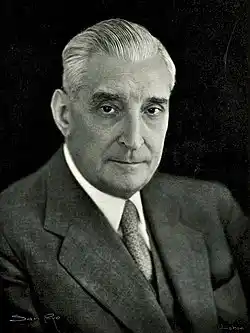Portuguese emigration is the process whereby people from Portugal have left the county itself in the west of the Iberian Peninsula and spread out around the world, creating a Portuguese diaspora around the world. While people are always coming and going to countries, in Portugal’s case emigration really began on a major scale from the fifteenth century onwards as it began to carve out an overseas colonial empire, starting with Atlantic islands like Madeira and the Cape Verde Islands, and then expanding to parts of Africa, Asia and South America. Portuguese emigration peaked between the seventeenth and nineteenth centuries when millions of Portuguese people emigrated from the home country to South America during the Brazilian Gold Rush. In more recent times, Portuguese people have emigrated from their homeland to other parts of Europe and North America.[1]
Research your ancestors on MyHeritage
History of Portuguese emigrationHistory of Portuguese emigration
Portugal is a small country, one with a population of just over ten million people. However, there are well over 100 million people worldwide with a significant amount of Portuguese ancestry and approximately a quarter of a billion people globally speak Portuguese. This came about owing to a steady stream of Portuguese emigration since the fifteenth century. This was not long after the Portuguese state had become fully formed. The Kingdom of Portugal only really emerged in the mid-twelfth century with the capture of Lisbon from the Moors of Iberia and the Reconquista of Portugal from the Muslims was only completed in 1249 when Faro in the Algarve fell to the Christians.[2] Thereafter the Portuguese began exploring the Atlantic and down the coast of Africa. By the middle of the fifteenth century they had discovered the Azores, Madeira and the Cape Verde Islands and Portuguese emigration began as a form of colonization.[3]
The Portuguese colonial empire expanded in the sixteenth century, with major trading stations and outposts established in places like Mozambique, the island of Socotra in the Indian Ocean, several places along the coast of India, the Malay Peninsula, the Moluccas in the East Indies and Macau in southern China. Some Portuguese adventurers emigrated from the Iberian Peninsula to take up positions as soldiers or traders in these places, but they were not settler colonies in the same vein as the Spanish colonies being developed in places like Mexico, Cuba and Peru. Instead it was not until the seventeenth century, after the discovery of the extensive gold mines in Brazil, that large scale emigration from Portugal began. Between the 1690s and the middle of the nineteenth century the largest wave of Portuguese emigration occurred from Portugal to Brazil. This process explains why so many people speak Portuguese globally today, the majority being in Brazil.[4]

Portuguese emigration continued into the late nineteenth and twentieth centuries. Much of it between the 1880s and the 1920s took place from Portugal to Angola and Mozambique, Portugal’s two major colonies in Africa. Yet the climate and environment of both colonies was not conducive to mass emigration from Portugal. Moreover, many people who emigrated from Portugal between the 1930s and the mid-1970s were seeking to leave Portuguese jurisdictions altogether, the colonies included, owing to the oppressive policies of António de Oliveira Salazar, the dictator of Portugal between 1932 and 1968. Many Portuguese people who left the country during these decades migrated to North America and settled in the United States or Canada.[5]
Finally, the entry of Portugal into the European Economic Community, the forerunner of the European Union, in 1986, has led to considerable emigration of people from Portugal to other European states over the last four decades. The largest such Portuguese expat community has developed in France, while there are also substantial numbers of Portuguese people in Germany, Luxembourg, the United Kingdom, Ireland, Belgium and the Netherlands. Obviously there has been some emigration from Portugal to neighboring Spain, though not on as large a scale as one would expect. Finally, although not a part of the EU, Switzerland has welcomed a large community of Portuguese workers over the last thirty years. There are more Portuguese people in Switzerland than in Porto, the second largest city in Portugal.[6]
The Portuguese diasporaThe Portuguese diaspora
The Portuguese diaspora is vast as a result of this emigration since the fifteenth century. The foremost element of this lies in South America. Hundreds of thousands of Portuguese people emigrated from their homeland to Brazil alone in the eighteenth century, while the figure grows into the millions when discussing the longer period of Portuguese colonial activity here between the sixteenth and nineteenth centuries. Although many have intermarried with native Brazilians, the descendants of the colony’s huge slave population, and various Spanish, Italian, German and Irish migrants that arrived over the centuries, tens of millions of people in Brazil today have Portuguese ancestry of one kind or another.[7]
The impact of Portuguese colonial emigration on South America and other parts of the world extends beyond Brazil. Over a million Venezuelans have Portuguese ancestry.[8] The number is also quite high in Chile, with perhaps 200,000 people there having Portuguese heritage, though it is smaller in Argentina and Uruguay, perhaps surprisingly so given the proximity of those countries to Brazil. Half a million people in Angola are descended from Portuguese colonial migrants and over 200,000 people in Mozambique.[9]

The impact of more modern Portuguese emigration has been felt most keenly in France. At least one million people in France are Portuguese-born or their parents or grandparents were, while some studies place the number of people in France with Portuguese heritage closer to two million, equivalent to 20% of the population of Portugal itself.[10] Upwards of one and a half million people in the United States claim Portuguese heritage, though some may have arrived via Brazil, while there are over half a million Portuguese people in Canada.[11] The number of Portuguese people in Spain is surprisingly small, less than 200,000 by some estimates.
The scale of Portuguese migration to two countries in Europe is very notable. These are Luxembourg and Switzerland. The population of Luxembourg as a whole is just around 670,000 people. Of these around, 95,000 are Portuguese, roughly 14%, while another 50,000 may have some Portuguese heritage. This is an absolutely extraordinary figure for such a small European country.[12] Similarly, though not quite on the same scale as Luxembourg, over a quarter of a million people of Portuguese birth live in Switzerland, out of a country of under nine million people. All in all, Portuguese emigration has transformed the demography of many parts of the world and often in countries that we would not expect.
See alsoSee also
Explore more about Portuguese emigrationExplore more about Portuguese emigration
- Portugal, Baptisms, 1570-1910 records collection on MyHeritage
- Portugal, Madeira Passport Applications records collection on MyHeritage
- Brazil, Rio de Janeiro, Immigration Cards, 1900-1965 records collection on MyHeritage
- Brazil, São Paulo Immigration Cards records collection on MyHeritage
References
- ↑ Malyn Newitt, Emigration and the Sea: An Alternative History of Portugal and the Portuguese (London, 2015).
- ↑ https://www.algarvehistoryassociation.com/en/portuguese-history/algarve-history/89-crusading-spirit-or-how-the-algarve-became-portuguese
- ↑ https://www.worldhistory.org/article/1762/the-portuguese-colonization-of-cape-verde
- ↑ Manoel Cardozo, ‘The Brazilian Gold Rush’, in The Americas, Vol. 3, No. 2 (October, 1946), pp. 137–160.
- ↑ Maria Ioannis B. Baganha, ‘From Closed to Open Doors: Portuguese Emigration under the Corporatist Regime’, in E-Journal of Portuguese History, Vol. 1, No. 1 (Summer, 2003), pp. 1–16.
- ↑ https://www.timeout.com/switzerland/blog/ten-facts-about-switzerlands-foreign-residents
- ↑ Dauril Alden, ‘The Population of Brazil in the Late Eighteenth Century: A Preliminary Study’, in Hispanic American Historical Review, Vol. 43, No. 2 (1963), pp. 173–205.
- ↑ https://bdigital.ufp.pt/bitstream/10284/2836/3/450-464.pdf
- ↑ https://www.bbc.co.uk/news/world-africa-22025864
- ↑ https://www.euronews.com/2017/05/04/portuguese-immigrants-show-france-what-successful-assimilation-looks-like
- ↑ Maria Beatriz Rocha-Trindade, ‘The Portuguese Diaspora’, in Carlos Teixeira and Victor M. P. Da Rosa (eds), The Portuguese in Canada (Toronto, 2008).
- ↑ https://www.alphatrad.co.uk/news/portuguese-in-luxembourg

